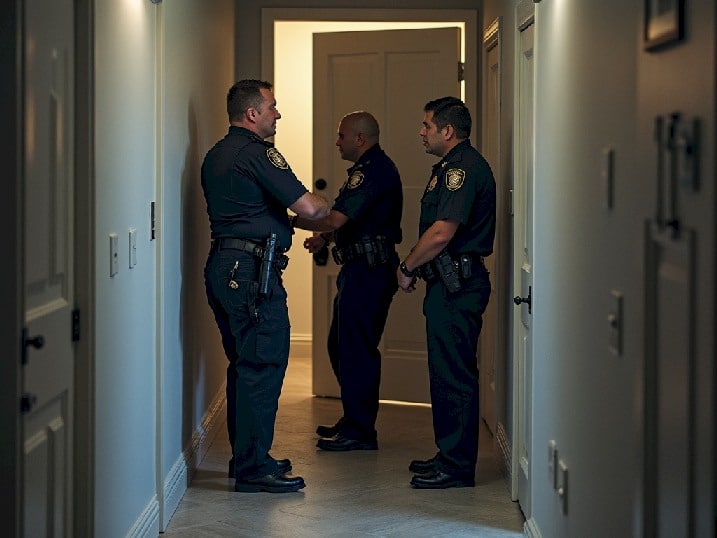When it comes to no-knock warrants, Florida seems to be leading the way in caution, but appearances can be deceiving. Alongside Oregon, Florida is one of only two states that prohibits these controversial police practices. But as with most laws, the devil is in the details.
The ban on no-knock warrants in Florida stems from the 1994 Florida Supreme Court case, State v. Bamber, which established that officers must knock, announce their presence, and give occupants enough time to respond before breaking down the door. This is enshrined in Florida Statute 933.09, meant to ensure the sanctity of one’s home isn’t arbitrarily violated. Yet, this statutory shield is more porous than it seems.
Contents
Knock-and-Announce With a Twist
While Florida’s law explicitly bans no-knock warrants, it leaves the door wide open—literally and figuratively—for what are called “quick-knock” raids. In these instances, police do announce their presence, but barely a breath passes before they storm inside. Critics argue this is no different from a no-knock entry, undermining the intended protections of the statute.
But even more concerning is that Florida law permits officers to enter without knocking under certain “exigent” circumstances. Here’s where things get murky. If officers suspect someone inside already knows they’re there, or if they believe their own safety is at risk, or if they think evidence might be destroyed in those few seconds—they can effectively treat it as a no-knock situation.
The Fine Print of Exigent Circumstances
Let’s break down these loopholes that keep no-knock-like raids very much alive in the Sunshine State:
- Prior Knowledge: If the person inside already knows the police are there, the officers don’t need to knock. But who decides that? Often, it’s the police in the heat of the moment.
- Imminent Harm: If officers believe someone inside is in imminent danger, they can skip the knock. A vague determination, subject to interpretation.
- Officer Safety: If announcing their presence puts officers at risk, they can proceed without knocking. In practice, this can be cited in almost any high-stress situation.
- Escape or Evidence Destruction: If police suspect that occupants might destroy evidence or try to flee, the knock becomes optional.
While these exceptions might sound reasonable on paper, they grant law enforcement a lot of leeway. As a result, even though “true” no-knock warrants are illegal in Florida, in practice, they still occur under the guise of these exigent circumstances.
The Call for More Accountability
Activists and lawmakers have not overlooked these legal gymnastics. There have been calls to further restrict how all types of search warrants are executed, with demands for increased police accountability in these high-stakes operations. The site End All No-Knocks has been particularly vocal about this, pointing out the glaring gap between the law’s intent and its real-world application.
In the end, Florida’s ban on no-knock warrants might sound reassuring, but the loopholes are large enough to drive a battering ram through.
Recent Developments
Florida already bans no-knock warrants, but there have been efforts to further restrict search warrant practices:

